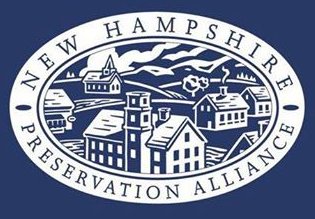New Planning Funds Available to Community Preservation Projects
With a new grant from the Land & Community Heritage Investment Program (LCHIP), the N.H. Preservation Alliance has funding to offer community project leaders support for historic building assessment grants through 2022.
The Alliance will use its $60,000 award to make up to 15 grants to non-profits and municipalities for historic building assessments. Building assessments are useful tools for groups starting their preservation project or advancing to a new phase. The process brings preservation professionals, architects and engineers together to inspect and document a structure’s construction, evolution, and condition, and make recommendations for repair and reuse, along with cost estimates. The Alliance’s building assessment program has helped property owners and advocates create “road maps” for 90 community landmarks in 77 towns and cities to date.
The LCHIP Board of Directors announced the Preservation Alliance’s grant award on December 14. It was one of 40 new LCHIP grants to support historic preservation and land conservation projects, including properties listed on the Preservation Alliance’s Seven to Save. Nearly all of the historic preservation grant recipients have been helped by the Alliance’s services, including funds for building assessments. “The Preservation Alliance is proud to have been part of the project development process for many of the new LCHIP grant recipients, and extends an invitation to new projects that are seeking funding and guidance for getting started and moving forward,” said Beverly Thomas, program director of the N.H. Preservation Alliance.
LCHIP’s historic resource grants include projects as straightforward as new roofing to as complex as near-total rehabilitation of elaborate buildings. Coincidentally, the oldest and newest buildings receiving grants are both town halls: Salem (1738), now historical society headquarters and Wilmot (1906) suffering from flood-induced water damage. Seven to Save listees receiving grants include Blow Me Down Farm in Cornish, Gale School in Belmont, Chandler House in Manchester, St. Anne’s Church in Berlin, Drew Mill Dam in Wakefield, Langdon Congregational Church, Mont Vernon Town Hall and the Grafton Center Meetinghouse.
“This news is a great boost for communities across the state,” said Jennifer Goodman, executive director of the Preservation Alliance. “LCHIP grants are matching investments that revive historic landmarks, help protect our sense of community and drive new economic activity.”
LCHIP grant recipients are required to raise a minimum of one dollar for each dollar provided by LCHIP. This year’s awards of $4.7 million will be matched by $19 million that the project proponents will raise from other public and private sources, infusing a total of twenty-three million dollars into the state’s economy in direct project activity. More on this year’s LCHIP list here.
Historic preservation activity supports jobs, enhances the tax base and helps spur additional investment. Because of the labor intensive nature of rehabilitation, more money circulates in local economies than it does with new construction.
The New Hampshire Preservation Alliance strengthens communities and stimulates local economies by encouraging the protection and revival of historic buildings and places. The organization worked with legislators, business leaders and conservation colleagues to create the LCHIP program, and continues to advocate for sustaining LCHIP’s effective investments.
The New Hampshire Land and Community Heritage Investment Program is an independent state authority created by the legislature in 2000. LCHIP’s legislative mandate is to ensure the perpetual contribution of natural, cultural and historic resources to the economy, environment, and quality of life in New Hampshire. LCHIP does this by providing matching grants to New Hampshire municipalities and non-profits to conserve and preserve the state’s most important natural, cultural and historic resources. The program has provided 530 grants which have helped to conserve close to 300,000 acres of land for food production, water quality, ecological values, timber management and recreation and has supported projects to study and rehabilitate 324 historic structures and sites. Grants have been awarded in all parts of the state and in 179 of New Hampshire’s 234 communities. Fifty-four million dollars of state money have led to a total project value of more than $312 million. The money for LCHIP grants comes from fees on four kinds of documents recorded at the Registry of Deeds in every county of the state.
Touring the Chandler House this October, photo by Steve Booth. This Seven to Save listee used grant support provided by the Preservation Alliance — through prior support of LCHIP and the Rick and Duffy Monahon Fund — to prepare a robust road map for action. Read more about the Currier' Museum’s plans for the building at https://currier.org/event/chandler-house-restoration-fund. And congratulations to the Currier and others for their 2021 LCHIP grant!

